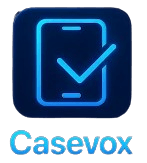Stop Pioneer Credit Recovery Phone Harassment
Does it seem like the phone wouldn’t stop ringing? Are you being constantly hounded with calls and messages from Pioneer Credit Recovery? This is probably because you owe a debt. Pioneer Credit Recovery and other debt collection agencies task themselves with collecting third-party debt and often go to extreme measures in order to do so, hence the unending and frustrating calls. Collection fees can also be a concern for consumers dealing with Pioneer Credit Recovery, as these fees may sometimes be deceptive or unlawful. Often times, being in debt can be vexing and might even be the source of many sleepless nights. However, remember to always maintain your cool when dealing with Pioneer Credit Recovery or other debt collectors and try not to engage them in a verbal battle.
You probably didn’t know that there are Federal laws that protect consumers like you from Pioneer Credit Recovery phone harassment. They protect you from unfair debt collection practices, they also ensure that your human rights are not violated during Pioneer Credit Recovery debt collection. These laws are called the Fair Debt Collection Practices Act (FDCPA), which restricts debt collectors from contacting you at inconvenient times. Calls outside of acceptable hours are considered harassment and can be reported as violations of your rights.
Are you wondering why you’re experiencing Pioneer Credit Recovery debt collection when you have no memory of ever acquiring debts from them, this is because Pioneer Credit Recovery has purchased your debt from the creditor who you initially owe and as a debt collection agency and they are trying to get you to pay up? It is important to note that not all types of debt are covered by the FDCPA. Businesses debt or individuals who take business loans are not covered, however personal, household, medical and student loans are.
Introduction To Debt Collection
Debt collection is the process of recovering debts from individuals or businesses that have failed to pay their debts. Debt collectors, like Pioneer Credit Recovery, play a crucial role in this process. They work on behalf of creditors to collect debts and often use various tactics to persuade debtors to pay their debts. Understanding debt collection is essential for both creditors and debtors, as it can help them navigate the complex process and avoid potential pitfalls.
Debt Collection Process
The debt collection process typically begins when a creditor hires a debt collector to recover a debt that is owed to them. The debt collector will then contact the debtor and attempt to persuade them to pay the debt. This can involve sending letters, making phone calls, and even filing lawsuits. Debt collectors are required to follow the Fair Debt Collection Practices Act (FDCPA), which is a federal law that regulates debt collection practices. The FDCPA prohibits debt collectors from using abusive or deceptive tactics to collect debts, and it also requires them to provide debtors with certain information, such as the amount of the debt and the name of the creditor.
Understanding Pioneer Credit Recovery
Pioneer Credit Recovery is a debt collection agency that specializes in collecting debts on behalf of government entities, including local government entities. The company operates as a third-party debt collector, which means it is hired by creditors to collect debts that are owed to them. Pioneer Credit Recovery has been in business for over 40 years and has a reputation for being a reputable debt collector. However, like any debt collector, it is not immune to complaints and criticism from consumers.
Who Is Pioneer Credit Recovery?
Pioneer Credit Recovery or PCR is a third-party collection agency based in New York. Navient owns PCR. Navient was created when Sallie Mae was split into two different entities so one handled private student loans and one handled public student loans. PCR specializes in collecting on student loans. In 2015, the Department of Education fired PCR and stopped them from collecting on Government loans. Pioneer Credit Recovery’s services have an extensive reach across the country, emphasizing their role as a key provider for government entities in collecting delinquent debts such as court fines and fees.
Dealing with debt collection companies and credit card companies can have significant legal and financial implications. Consumers should be aware of their rights and the strategies available for managing debts. These companies often use aggressive tactics, and there are legal protections available to consumers facing lawsuits or harassment from debt collectors.
🏛️ Pioneer Credit Recovery Address: 26 Edwards Street Arcade, New York 14009
📞 Phone: (585) 492-1234

Is Pioneer Credit Recovery A Scam?
According to the Better Business Bureau website, Pioneer Credit Recovery has been in business for 33 years. There have been 122 complaints filed against PCR with the BBB in the last 3 years alone. Having proof to verify the legitimacy of a debt is crucial. This legal right helps mitigate inaccuracies in credit reports, which can significantly affect an individual’s financial status.
Pioneer Credit Recovery Phone Numbers
Are you receiving any harassing phone calls from any of the following numbers?
- 📱 (317) 960-1535
- 📱 (607) 304-4461
- 📱 (317) 960-1530
- 📱 (585) 492-1234
- 📱 (855) 542-2843
- 📱 (607) 821-7365
- 📱 (347) 689-1070
- 📱 (877) 411-6269
- 📱 (844) 637-1609
- 📱 (866) 746-4940
- 📱 (973) 870-0787
- 📱 (800) 609-0369
- 📱 (800) 511-9260
- 📱 (855) 287-3180
- 📱 (866) 394-4503
- 📱 (917) 423-3099
If the answer is yes, then you are receiving calls from a known Pioneer Credit phone number. You may be a victim of PCR phone harassment. Call us now on 877-700-5790 for immediate assistance.
Consumers struggling with issues related to Pioneer Credit Recovery can contact us for a free case review to address their credit report challenges.
What Are Debt Collectors Prohibited From Engaging In?
- ▶️ Pester you with unending calls and messages during Pioneer Credit Recovery debt collection especially after you have written them a cease letter.
- ▶️ Contact you before 8 am or after 9 pm. Pioneer Credit Recovery debt collection calls should never come at odd hours. If that happens, it is Pioneer Credit Recovery phone harassment.
- ▶️ Try to get you to pay more than you owe, you are liable for what you owe, not a single cent more.
- ▶️ Tell you that you have broken the law, treat you like a criminal, or say they would have you arrested.
- ▶️ Publish false information on your credit record.
- ▶️ Use abusive and nasty words while addressing you, yell at you, or be generally rude and condescending. This is Pioneer Credit Recovery phone harassment, and it is totally unacceptable.
- ▶️ Continue contacting you after they’ve been informed of your legal representation.
- ▶️ Contact you at your workplace after they have been expressly told not to.
- ▶️ Threaten to harm you or your loved ones.
- ▶️ Pose as attorneys or Government officials or serve you with untrue debt information.
- ▶️ Publish your debt in newspapers, magazines, or on social media.
- ▶️ Say that they would take away your pension, alimony, child support, or funds of that sort.
- ▶️ Use threatening language that intimidates or harasses you. The Fair Debt Collection Practices Act (FDCPA) prohibits such behavior.
- ▶️ Claim to be a government agency. Pioneer Credit Recovery is not a government agency, and consumers should be aware of this distinction.

Pioneer Credit Recovery Time Barred Debts
Time-barred debts are simply debts that you cannot be sued for either by creditors or debt collectors because they are too old. They are debts that have reached their statute of limitation. Sending a debt validation letter is crucial to verify the legitimacy of a debt and protect your rights under the Fair Debt Collection Practices Act (FDCPA).
The Fair Debt Collection Practice (FDCPA) do not allow debt collectors bring a suit or threatening for a time-barred debt. However, if you happen to be served a lawsuit for a time-barred debt, endeavor to respond promptly. It’s costly to assume that your response is of no importance since the statute of limitations of the debt is reached. Anyways, filing a complaint against the debt collector that infringes on your rights with the Federal Trade Commission (FTC) and your State Attorney General is a good idea.
Another thing to note is that, that the debt is time-barred does not automatically cancel the debt. Within the bounds of the law, collectors can still collect time-barred debts using calls and letters. It is your duty to ask the collector if the debt has reached its statute of limitation or not. Knowing this can help you dispute the debt. Again, inquire of the date of the debt and date of last payment. Till he provides this information, the debt collector must stop contacting you.
To settle with a debt collector whose aim is to collect a time-barred debt from you, you first need to carry out a debt validation. Request a written verification of the debt from the debt collector. This should be done within 30 days from your initial contact with the debt collector. If you are aware that the statute of limitations is reached and you want the debt collector to stop contacting you, send a written letter telling him that your statute of limitations is reached. Hence, you do not want to be contacted anymore.
If you owe the money, ignoring it is not the best option as it will still remain in your credit history. What’s more? Collectors will continue to try to collect the money due. It’s advisable you make a complete payment because partial payment restarts the statute of limitations and leaves a chance for you to get sued. Again, the interest could be added to the original fees.
On a final note, your rights should not be violated. When necessary, file a complaint with the FTC and your State Attorney General. Even if a debt is time-barred, collectors may still pursue collection through other means.

Credit Report and Debt Collection
Debt collection can have a significant impact on a person’s credit report. When a debt is sent to a debt collector, it can be reported to the credit bureaus, which can negatively affect the debtor’s credit score. However, debtors have the right to dispute errors on their credit report, and they can also work with debt collectors to resolve their debts and improve their credit history. It’s essential for debtors to understand their rights under the Fair Credit Reporting Act (FCRA), which is a federal law that regulates credit reporting.
Defaulted Student Loans
Defaulted student loans are a significant problem in the United States. When a borrower defaults on a student loan, the lender can send the debt to a debt collector, such as Pioneer Credit Recovery. Debt collectors can then attempt to collect the debt, which can involve garnishing the borrower’s wages or seizing their assets. However, borrowers have options for dealing with defaulted student loans, such as consolidating their loans or entering into a repayment plan. It’s crucial for borrowers to understand their options and to work with debt collectors to resolve their debts and avoid further financial problems. By doing so, they can protect their credit history and avoid the negative consequences of debt collection.
Pioneer Credit Recovery Complaints
The following is a sample list of complaints filed against Pioneer Credit Recovery in the past year and can be found on Pacer.gov.
- 📋 1:18-cv-00513-VEH Green v.
- 📋 2:18-cv-02288-CSB-EIL Blanchette v.
- 📋 1:18-cv-08134 Medrano v.
- 📋 1:18-cv-00915-LJV Jorgenson, v.
- 📋 2:18-cv-03182-KJM-EFB Parsons v.
Consumer Rights Law Firm PLLC
Consumer Rights Law Firm PLLC is a law firm that specializes in helping clients who are facing harassment from debt collectors. If you suspect that your debt collection rights are being trampled upon, contact our office to begin the process to stop the harassment you may currently be receiving from Pioneer Credit Recovery. Our office has been assisting consumers since 2010. We have an A+ rating with the Better Business Bureau.
FAQs
Why is Pioneer Credit Recovery calling me?
Pioneer Credit Recovery is a legitimate third-party debt collector that often handles government debts like student loans, taxes, fines, or court fees. If they’re calling, it’s because they believe you owe a debt that’s been referred to them.
Is Pioneer Credit Recovery a scam or a legit company?
They are a legitimate, long-established collection firm that has operated for over 40 years and often contracts with federal or state agencies.
Can Pioneer Credit Recovery legally harass me with phone calls?
No. Under the FDCPA, collectors cannot repeatedly call to annoy, threaten, use obscene language, or contact you at unreasonable hours. Such behavior is considered harassment and is illegal.
What counts as harassment from Pioneer Credit Recovery?
Harassment includes excessive calls, threatening arrest, using profane or abusive language, or contacting unauthorized third parties—all of which are prohibited under the FDCPA.
How can I verify that Pioneer Credit Recovery’s debt is valid?
You can send a debt-validation letter requesting written proof of the debt, including the original creditor’s information, dates, and the amount owed. If they can’t verify, the debt may be invalid.
Can Pioneer Credit Recovery appear on my credit report?
Yes. They may report your debt to major credit bureaus, which can negatively affect your credit score. You have the right to dispute any inaccurate information under the Fair Credit Reporting Act (FCRA).
What should I do if Pioneer Credit Recovery keeps calling me?
Document every call, then send a written cease-contact or debt-validation letter. If the calls continue unlawfully, you can file complaints with the CFPB, FTC, or your state attorney general and consider consulting a consumer rights attorney.
Can I sue Pioneer Credit Recovery for harassment?
Yes. If they violate the FDCPA or TCPA, you may sue them in court within one year and recover statutory damages and compensation for any actual harm.
Can Pioneer Credit Recovery garnish my wages?
They can only garnish your wages after obtaining a court judgment and following legal procedures. Without a judgment, wage garnishment is illegal.
What if Pioneer Credit Recovery is collecting IRS or tax debt?
The IRS contracts Pioneer (and a few others) to collect certain tax debts. The process is legal, but they cannot add unauthorized fees or engage in harassment.







